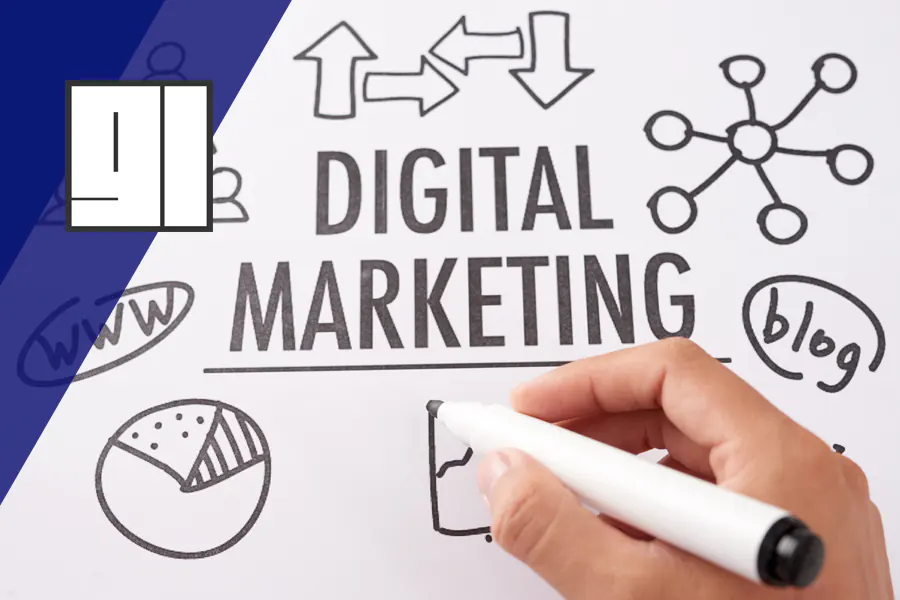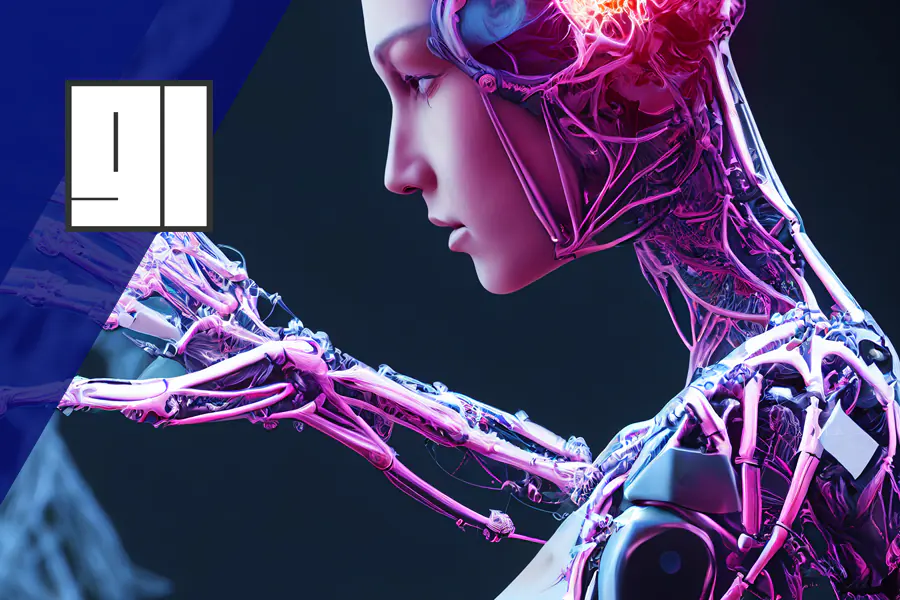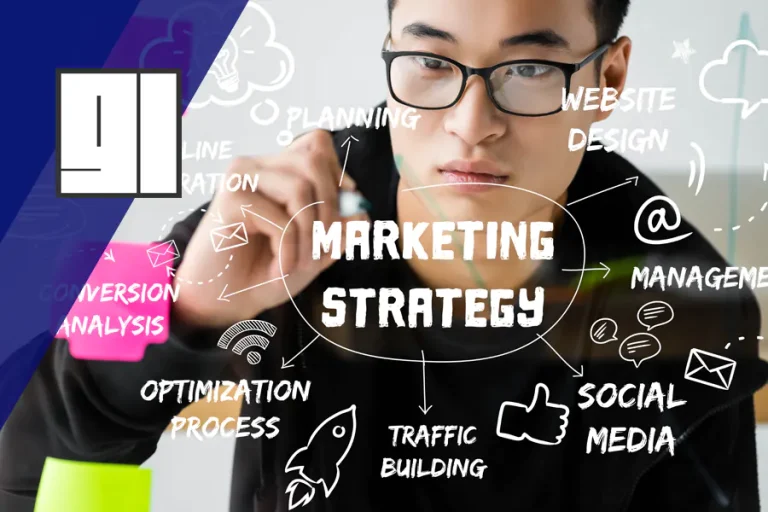150+ AI Software: Revolutionizing Key Industries
As we venture into 2023, the rapid advancements in artificial intelligence (AI) and machine learning technologies are transforming industries across various sectors. This blog post delves into the myriad ways these cutting-edge tools are revolutionizing customer experience, cybersecurity solutions, healthcare offerings, marketing communications, real estate applications, and retail industry innovations.
From chatbots providing efficient customer support to predictive analytics for proactive threat detection in cybersecurity systems – AI software is reshaping how businesses operate. In healthcare settings, intelligent automation streamlines administrative tasks while data analysis enables personalized treatment recommendations.
In this comprehensive exploration of AI Software 2023’s impact on diverse domains, you’ll gain insights into data-driven audience segmentation techniques that enhance marketing efforts and dynamic content creation powered by machine learning algorithms. Additionally, learn about property recommendation engines based on buyer preferences in real estate markets and automated valuation models (AVMs) for accurate pricing strategies.
Enhancing Marketing Communications with AI
If you’re a marketer, blogger, entrepreneur, or business owner looking to level up your marketing game in 2023, it’s time to embrace the power of artificial intelligence (AI) software. AI-enabled tools allow you to generate highly tailored and individualized messages that will connect with your customers more effectively than ever before. Let’s dive into how these cutting-edge technologies are revolutionizing marketing communications.

Data-driven Audience Segmentation Techniques
Thanks to AI-powered data analysis techniques, we can now accurately identify different customer groups based on their behavior patterns, preferences, and demographics.
- Behavioral Analysis: By analyzing user interactions across various touchpoints such as website visits or social media engagement, AI algorithms help us understand what makes our customers tick.
- Demographic Insights: Leveraging machine learning models allows us to uncover hidden trends within demographic data sets that traditional methods might miss.
- Predictive Analytics: This advanced technique uses historical data combined with sophisticated algorithms to forecast future behaviors and preferences of potential customers – enabling more accurate targeting strategies.
The result? Highly segmented audiences that allow for laser-focused messaging tailored specifically for each group – leading to increased engagement rates and better conversion opportunities.
Dynamic Content Creation Powered by Machine Learning
We all know how important it is for brands today not only to have compelling content but also to ensure they deliver this information at just the right moment their prospects need most; however, creating such personalized experiences can be time-consuming and expensive. Enter AI-driven dynamic content creation.
By leveraging machine learning algorithms and natural language processing (NLP) techniques, marketers can create tailored content that dynamically adjusts to user preferences in real-time. This means:
- Email Campaigns That Hit Home: By analyzing recipient data and behavior patterns, AI-powered email marketing platforms like Iterable enable you to send highly relevant messages at the optimal time for each subscriber.
- Social Media Posts That Stand Out: Platforms like Lately.AI, which leverage artificial intelligence technology, automatically create engaging social media posts from your existing content – ensuring a consistent brand voice across all channels while maximizing reach and engagement.
- Landing Pages That Convert: Tools such as Instapage‘s Thor Render Engine use AI to optimize landing page designs based on visitor data – resulting in higher conversion rates by delivering an experience tailored specifically for each user’s needs.
The bottom line? Artificial intelligence software is transforming how we approach marketing communications by enabling us to deliver targeted messages that truly resonate with our audience. So why not harness the power of these cutting-edge tools today and elevate your business or work?
AI software is revolutionizing marketing communications by providing the tools to create more targeted, personalized campaigns.
AI Software in Marketing
- Adobe Target – A personalization platform that predicts the optimal experience for each customer using AI algorithms and real-time data.
- Blueshift – An AI-powered customer data activation platform that leverages machine learning to deliver personalized experiences across channels.
- Emarsys – An omnichannel engagement platform that uses AI to deliver personalized, behavior-based campaigns that improve customer loyalty and revenue.
- Iterable – An omnichannel marketing automation platform that uses machine learning to personalize customer interactions across email, mobile, and web.
- Persado – An AI-powered marketing language platform that uses natural language generation to create emotionally targeted messages that drive engagement and revenue.
- MarketMuse – An AI-powered content optimization platform that uses machine learning to analyze content and provide recommendations for improvement.
- Optimizely – A platform that uses machine learning to optimize digital experiences, from A/B testing to personalization and experimentation.
- Salesforce Marketing Cloud – A marketing automation tool suite that uses AI to deliver personalized experiences across email, mobile, social, and web.
- Acquia – A digital experience platform that uses AI to deliver personalized content, commerce, and community experiences across channels.
- Act-On – An all-in-one marketing automation platform that uses machine learning to deliver personalized experiences across email, web, social, and mobile.
- Amplero – An AI-powered marketing optimization platform that uses machine learning to improve customer lifetime value by predicting and delivering personalized experiences.
- Arm Treasure Data – A customer data platform that uses AI to unify and activate customer data for marketing and analytics purposes.
- Cognitivescale – An AI-powered platform that enables companies to create and deploy personalized customer experiences at scale.
- Conversica – An AI-powered conversational marketing platform that automates lead follow-up and engagement via natural language processing.
- Amperity – An advanced customer segmentation and predictive analytics platform that helps retailers identify high-value customers and automate personalized marketing campaigns.
- Dynamic Yield – An AI-powered personalization platform that uses machine learning to optimize customer experiences across web, mobile, and email.
- Insider – An AI-powered growth management platform that uses predictive analytics to deliver personalized experiences across web, mobile, and email.
- Kahuna – A mobile marketing automation platform that uses AI to deliver personalized messaging at scale.
- Monetate – An AI-powered personalization platform that uses machine learning to deliver personalized experiences across web, mobile, and email.
- IgniteTech – A content personalization platform that uses AI to deliver individualized content experiences for each customer.
- Qubit – A personalization platform that uses AI to optimize customer experiences across web, mobile, and email.

AI-powered Writing Software
- Content at Scale – An AI that uses natural language processing and machine learning to create high-quality, SEO-optimized content at scale for businesses and agencies.
- Jasper – An AI-powered writing assistant that helps writers improve their writing by offering grammar, style, and tone suggestions.
- Copy.ai is an AI-powered platform that uses machine learning to generate high-quality content based on user inputs and preferences, including product descriptions, social media posts, and ad copy.
- Copysmith – An AI-powered tool that helps writers generate high-quality copy, including product descriptions, ad copy, and social media posts.
- Frase – An AI-powered tool that helps writers research and write comprehensive content briefs, including outlines, research, and citations.
- Headlime – A content optimization platform that uses AI to analyze and improve headlines for higher click-through rates and engagement.
- Wordsmith – An AI-powered natural language generation platform that automates the creation of data-driven content, such as reports, product descriptions, and news articles.
- Peppertype.ai – An AI-powered writing assistant that helps writers generate content ideas, outlines, and first drafts using natural language processing.
- Outwrite – An AI-powered writing assistant that helps writers improve their writing with advanced grammar and style suggestions.
- Textio – An AI-powered writing platform that uses predictive analytics to suggest language, tone, and style improvements for a more effective message.
- RAD AI – An AI-powered content optimization platform that uses machine learning to analyze and improve the effectiveness of blog posts, social media content, and email marketing campaigns.
We have you covered if you are looking for a specific guide on using AI writing assistant software or a list of the best AI writing software.
Marketers, bloggers, entrepreneurs, and business owners can enhance their marketing game in 2023 by embracing the power of AI software.
With data-driven audience segmentation techniques and dynamic content creation powered by machine learning, businesses can create highly targeted and personalized content that resonates with their audience, leading to increased engagement rates and better conversion opportunities.
AI-powered Cybersecurity Solutions
Gone are the days when businesses could rely solely on traditional security measures to protect their digital assets. With cyber threats becoming more sophisticated and prevalent, it’s time for a new approach: artificial intelligence (AI) powered cybersecurity solutions. Cutting-edge tech enables companies to remain ahead of cybercriminals, with AI-driven security solutions detecting potential threats and keeping networks secure.

Real-time Network Monitoring Using AI Algorithms
Narrow AI, an innovative player in the field, is revolutionizing how we monitor our networks with its advanced algorithms. Narrow can identify unusual activity that may indicate a breach or vulnerability by continuously analyzing data traffic patterns. This allows IT teams to respond quickly and mitigate risks before they escalate into full-blown disasters.
- Faster detection: Traditional methods often take hours or even days to detect intrusions; however, AI-driven systems can spot them within minutes.
- Better accuracy: Human error is inevitable when manually monitoring vast amounts of data. AI reduces false positives while increasing true positive detections.
- Saving resources: Automating network monitoring frees up valuable time for IT professionals to focus on critical tasks like infrastructure optimization and strategic planning.
Predictive Analytics for Proactive Threat Detection
Rather than waiting for attacks to happen, why not predict them? That’s where predictive analytics comes into play. By leveraging machine learning models trained on historical threat data, these intelligent systems can forecast future attack patterns and provide actionable insights on how best to defend against them. For example, platforms like Darktrace use AI to analyze network behavior and detect anomalies that could signify an attack in progress.
- Stay ahead: Predictive analytics enables you to anticipate potential threats, allowing for proactive security measures instead of reactive responses.
- Risk assessment: By understanding which vulnerabilities are most likely to be exploited, businesses can prioritize patching efforts and allocate resources more effectively.
- Tailored defense strategies: As each organization’s threat landscape is unique, predictive analytics helps create customized solutions tailored to your business needs.
Given the current climate of cyber threats, organizations must invest in cutting-edge cybersecurity solutions. With AI-powered solutions like Narrow and Darktrace leading the charge, we’re better equipped to safeguard our networks from malicious actors. So why not give these innovative technologies a try? Your data – and your peace of mind – will thank you.
AI-based Cybersecurity Solutions can be advantageous in protecting digital resources and detecting potential dangers in advance.
AI Software in Cybersecurity
- Darktrace – A cyber AI platform that uses unsupervised machine learning to identify and respond to cyber threats in real-time.
- Cylance – An endpoint security platform that uses AI to prevent malware and advanced threats.
- Vectra – A network detection and response platform that uses AI for real-time threat detection.
- McAfee Enterprise Security Manager – A SIEM solution that uses AI and machine learning to detect and respond to threats.
- Exabeam – A security management platform that uses AI for threat detection, investigation, and response.
- Cybereason – An endpoint detection and response platform that uses AI for real-time threat prevention and detection.
- FireEye – A threat intelligence platform that uses AI and machine learning for threat detection and response.
- Palo Alto Networks – A security platform that uses AI for threat prevention, detection, and response.
- Fortinet – A network security platform that uses AI for real-time threat detection and response.
- Trend Micro – A security platform that uses AI for threat detection and response and predictive analytics for proactive protection.
- CyberArk – A privileged access management platform that uses AI for threat detection and response.
- Forcepoint – A cybersecurity platform that uses AI for real-time threat detection and response.
- Sophos – A security platform that uses AI for threat detection, response, and remediation.
- IBM Security – A platform using AI for threat management, intelligence, and orchestration.
- Check Point Software – A cybersecurity platform that uses AI for real-time threat prevention and detection.
- Symantec – A security platform that uses AI for threat detection, response, and remediation.
- RSA Security – A cybersecurity platform that uses AI for threat detection, response, and remediation.
- LogRhythm – A SIEM solution that uses AI and machine learning for real-time threat detection and response.
- F-Secure – A cybersecurity platform that uses AI for threat detection, response, and remediation.
- SentinelOne – An endpoint security platform that uses AI for threat detection and response.
AI-powered cybersecurity solutions are the future of protecting digital assets. Narrow AI is leading the way in real-time network monitoring using advanced algorithms to detect potential threats quickly and accurately.
Predictive analytics allows for proactive security measures by forecasting future attack patterns and providing tailored defense strategies, making it essential for companies to invest in these innovative technologies.
AI in Software Development
As software development becomes increasingly complex, businesses turn to AI-powered code generators to streamline the process and save valuable time and resources. These innovative platforms use machine learning algorithms to generate code based on user input and historical data, resulting in faster development cycles and higher-quality code.

Rev Up Development Speed and Skyrocket Productivity
As the demand for software continues to grow, investing in AI-powered code generators can provide businesses with a competitive edge.
Platforms like GitHub Copilot and TabNine are leading the way in automated code generation, bringing us one step closer to a future where software development is faster, more efficient, and more accurate than ever.
So why not give these innovative technologies a try?
Your development team – and your bottom line – will thank you.
- Faster development: By automating the code generation process, AI-powered platforms like GitHub Copilot and TabNine can significantly reduce development time, allowing teams to focus on other aspects of the project.
- Improved code quality: AI-generated code is often more accurate and error-free than traditional human-written code, resulting in higher-quality software.
- Increased productivity: With AI-generated code, developers can spend less time on repetitive tasks and more time on innovation and problem-solving.
- Customizable solutions: AI-powered code generators can be customized to meet the specific needs of each project, resulting in more efficient and effective software development.
- Predictive coding: As AI-powered platforms learn from historical data, they can predict the most likely next steps in the coding process, further streamlining development and saving valuable time.
Deliver Unparalleled Code Quality and Tailor-Made Solutions
Bid farewell to the frustrations of bug-ridden, human-written code. AI-generated code has been shown to exhibit 50% fewer defects, ensuring the software you deliver is of the highest quality.
But wait, there’s more! AI-powered code generators can be customized to meet each project’s unique requirements, making software development more efficient and effective.
With predictive coding capabilities, these platforms can anticipate the next steps in the coding process, further streamlining development and saving precious time.
Give your development team the competitive edge they deserve, and watch your bottom line soar! Give these groundbreaking technologies a try – you won’t be disappointed.
AI Software in Cybersecurity
- GitHub Copilot – AI-powered code completion tool that uses OpenAI’s GPT-3 to suggest code snippets.
- TabNine – AI-powered code completion tool that uses machine learning to predict the next line of code.
- Snyk – AI-powered code review tool that identifies bugs and security vulnerabilities in code.
- Code Intelligence – AI-powered security testing tool that uses machine learning to detect vulnerabilities in code.
- Diffblue – AI-powered automated testing tool that generates test cases to detect software bugs.
- CodeGuru – AI-powered code review tool that uses machine learning to find performance issues and suggest optimizations.
- Seldon – AI-powered platform for deploying machine learning models to production.
- Hugging Face – AI-powered natural language processing library for building chatbots and language models.
- TensorFlow – AI-powered open-source library for building machine learning models.
- PyTorch – AI-powered open-source library for building and training machine learning models.
- MLflow – AI-powered open-source platform for managing the machine learning lifecycle.
- Scikit-learn – AI-powered open-source library for machine learning in Python.
- BigDL – AI-powered open-source library for distributed deep learning.
- Apache Mahout – AI-powered open-source library for building scalable machine learning algorithms.
- DataRobot – AI-powered platform for building and deploying machine learning models.
- Algorithmia – AI-powered platform for deploying and scaling machine learning models in production.
- AWS SageMaker – AI-powered platform for building, training, and deploying machine learning models.
- Azure Machine Learning – AI-powered platform for building and deploying machine learning models on Microsoft Azure.
Don’t get left behind in the rapidly evolving world of software development.
By automating the code generation process, development time can be slashed by a staggering 25-35%, freeing up your team to focus on other crucial aspects of the project.
Retail Industry Innovations Through AI
As the retail industry progresses, AI becomes a major factor in how businesses interact with customers and manage operations. From chatbot-driven customer support in e-commerce to predictive analytics for demand forecasting, AI-powered tools are revolutionizing how retailers enhance customer experience, optimize inventory management, and streamline operations for increased efficiency.

Chatbot-Driven Customer Support in E-Commerce
Gone are the days of waiting on hold or sifting through FAQs to find answers to your questions. With AI-powered chatbots, online shoppers can get instant assistance without human intervention. These intelligent virtual assistants provide quick responses and learn from previous interactions to improve future conversations.
- 24/7 availability: Chatbots offer round-the-clock support, ensuring customers receive help whenever needed.
- Faster response times: By automating repetitive tasks like answering frequently asked questions, chatbots reduce wait times and increase overall satisfaction.
- Better personalization: Leveraging user data and preferences allows chatbots to deliver tailored product recommendations based on individual needs and interests.
Predictive Analytics for Demand Forecasting
Inaccurate demand forecasts can lead to stockouts or overstocked inventory – both of which hurt profits. Enter AI-based predictive analytics: these powerful algorithms analyze historical sales data alongside real-time market trends (SAS Demand-Driven Planning & Optimization software), enabling retailers to make informed decisions about inventory levels and replenishment schedules.
- Improved accuracy: AI-driven demand forecasting tools provide more precise predictions than traditional methods, reducing the risk of stockouts or excess inventory.
- Optimized pricing strategies: By analyzing market conditions and consumer behavior patterns, retailers can develop dynamic pricing models that maximize revenue opportunities.
- Better resource allocation: With accurate demand forecasts in hand, businesses can allocate resources effectively – from staffing to warehouse space – ensuring optimal efficiency across operations.
Data Science Techniques for Enhanced Customer Experience
Data science plays a crucial role in helping retailers understand their customers better. By collecting and analyzing vast amounts of data on shopping habits, preferences, and demographics (Tableau), retail businesses can create personalized experiences that drive customer loyalty and increase sales conversions. Here’s how AI-powered data science techniques are transforming the retail landscape:
- A/B testing & personalization: Retailers use machine learning algorithms to test different marketing campaigns simultaneously (A/B testing), identifying which ones resonate best with target audiences. This enables them to tailor content based on individual preferences for maximum impact.
- Sentiment analysis: Analyzing customer feedback through social media platforms or review sites helps retailers gauge overall sentiment towards their brand. Armed with this information, they can address any issues promptly while also capitalizing on positive feedback by promoting it further.
The integration of artificial intelligence into various aspects of the retail industry is not only improving operational efficiency but also enhancing customer experience at every touchpoint. Embrace these innovative technologies today to stay ahead in an increasingly competitive market.
Examples of AI Software in the Retail Industry
- Amazon Web Services (AWS) – Offers AI-powered solutions for retail, including personalized recommendations, demand forecasting, and voice-powered customer support.
- Salesforce Commerce Cloud – Offers AI-powered solutions for retail, including personalized recommendations and predictive analytics for demand forecasting.
- Shopify – Offers AI-powered solutions for retail, including personalized recommendations and predictive analytics for demand forecasting.
- Oracle Retail – Offers AI-powered solutions for retail, including demand forecasting, automated pricing, and personalized recommendations.
- Adobe Experience Cloud – Offers AI-powered solutions for retail, including personalized recommendations and predictive analytics for demand forecasting.
- IBM Watson – Offers AI-powered solutions for retail, including personalized recommendations and demand forecasting.
- SAP Hybris – Offers AI-powered solutions for retail, including personalized recommendations and demand forecasting.
- Intelistyle – Offers AI-powered solutions for retail, including personalized style recommendations and customer segmentation.
- Vue.ai – Offers AI-powered solutions for retail, including product recommendations, visual search, and personalized styling.
- Syte – Offers AI-powered solutions for retail, including visual search, product recommendations, and augmented reality.
- Sentient – Offers AI-powered solutions for retail, including personalized recommendations and A/B testing for website optimization.
- ViSenze – Offers AI-powered solutions for retail, including visual search and product recommendations.
- DynamicAction – Offers AI-powered solutions for retail, including demand forecasting and personalized recommendations.
- Bluecore – Offers AI-powered solutions for retail, including personalized recommendations and predictive analytics for email marketing.
- Nosto – Offers AI-powered solutions for retail, including personalized product recommendations and predictive analytics for email marketing.
- Bold360 – Offers AI-powered chatbot solutions for e-commerce customer support.
- LivePerson – Offers AI-powered chatbot solutions for e-commerce customer support.
- Ada – Offers AI-powered chatbot solutions for e-commerce customer support.
- Tars – Offers AI-powered chatbot solutions for e-commerce customer support.
- Helpshift – Offers AI-powered chatbot solutions for e-commerce customer support.
AI-powered tools are revolutionizing the retail industry, enhancing customer experience and optimizing inventory management.
Chatbots provide 24/7 support with faster response times and better personalization, while predictive analytics improve accuracy in demand forecasting and optimize pricing strategies.
Data science techniques enable retailers to create personalized experiences that drive customer loyalty and increase sales conversions through A/B testing, sentiment analysis, and more.
AI in Customer Experience
Imagine a world where your customers feel understood and valued at every touchpoint with your business. That’s the power of artificial intelligence (AI) software in enhancing customer experience. By understanding and identifying emotional behaviors, AI allows businesses to tailor their interactions with customers, leading to improved satisfaction and loyalty. Let’s dive into some game-changing applications of AI that are revolutionizing customer experience.

Chatbots for Efficient Customer Support
Gone are the days when customers had to wait on hold for hours just to get their queries answered. Enter chatbots, virtual assistants powered by AI algorithms that can handle multiple customer inquiries simultaneously, 24/7. These chatbots save time and provide accurate responses based on natural language processing (NLP), making them an indispensable tool for efficient customer support.
- Faster response times: Chatbots can instantly respond to common questions without human intervention, reducing wait times significantly.
- Better personalization: Thanks to machine learning capabilities, chatbots learn from past interactions and adapt accordingly, offering personalized assistance tailored to individual needs.
- Cutting costs: Implementing chatbot technology reduces labor expenses associated with traditional call centers while maintaining high-quality service levels.
Sentiment Analysis for Personalized Marketing
To succeed in today’s competitive market, businesses must differentiate themselves by delivering emotionally engaging content to their customers. Sentiment analysis – a powerful application of AI – helps marketers achieve this goal by analyzing social media posts or product reviews using NLP techniques like text mining and natural language understanding (NLU).
By extracting insights from these unstructured data sources, sentiment analysis tools like Lexalytics can identify customer emotion and preference trends. This information empowers marketers to create personalized marketing campaigns that evoke positive feelings among their audience.
- Better targeting: Sentiment analysis helps businesses segment their audience based on emotional responses, allowing them to deliver tailored content that appeals directly to specific customer groups.
- Informed decision-making: By uncovering patterns in consumer behavior, sentiment analysis guides companies in making strategic decisions about product development or promotional activities.
- Crisis management: Identifying negative sentiments early enables brands to address potential issues proactively before they escalate into full-blown PR disasters.
AI-powered software revolutionizes how companies communicate with their customers, allowing them to provide a more human experience while optimizing marketing efforts and customer satisfaction. With chatbots providing efficient support around the clock and sentiment analysis enabling personalized marketing efforts, your brand can stand out from the competition while keeping customers happy and loyal. So why wait? It’s time to embrace AI-driven solutions for an enhanced customer experience.
AI in customer experience is a valuable asset that can offer customers an individualized and productive service.
AI Software in Customer Experience
- IBM Watson Assistant – A chatbot platform that uses AI to provide customer support and personalized marketing.
- Salesforce Einstein – An AI-powered platform that offers chatbot features for customer support and sentiment analysis for personalized marketing.
- LivePerson – A conversational AI platform that uses chatbots for efficient customer support and personalized marketing.
- Oracle Digital Assistant – An AI-powered chatbot platform that offers personalized marketing and customer support.
- Bold360 – A conversational AI platform that uses chatbots for efficient customer support and personalized marketing.
- Ada – An AI-powered chatbot platform that offers personalized marketing and customer support.
- Intercom – A customer messaging platform that uses chatbots for personalized marketing and customer support.
- Chatfuel – A chatbot platform that uses AI to provide customer support and personalized marketing.
- Tars – A chatbot platform that uses AI to provide customer support and personalized marketing.
- BotStar – A chatbot platform that uses AI for efficient customer support and personalized marketing.
- Drift – A conversational AI platform that offers chatbots for customer support and personalized marketing.
- HubSpot – An all-in-one marketing, sales, and service software that uses chatbots for efficient customer support and personalized marketing.
- Zoho CRM – An AI-powered CRM software that offers chatbots for customer support and personalized marketing.
- Acquire – A conversational AI platform that uses chatbots for efficient customer support and personalized marketing.
- Verloop – A chatbot platform that uses AI for customer support and personalized marketing.
- Freshchat – A chatbot platform that offers AI-powered customer support and personalized marketing.
- Kustomer – An AI-powered CRM software that offers chatbots for efficient customer support and personalized marketing.
- Helpshift – A customer service platform that uses chatbots for efficient customer support and personalized marketing.
- Aivo – An AI-powered chatbot platform that offers personalized marketing and customer support.
- ChatBot – A chatbot platform that uses AI for customer support and personalized marketing.
AI software revolutionizes customer experience by providing personalized assistance and efficient support through chatbots.
Sentiment analysis tools help businesses create targeted marketing campaigns that resonate with their audience emotionally, leading to better targeting, informed decision-making, and crisis management.
Embracing AI-driven solutions can enhance the overall customer experience while keeping customers happy and loyal.
AI-driven Healthcare Offerings
Healthcare is an industry that has always been at the forefront of innovation, and with the introduction of artificial intelligence (AI), it’s no different. By leveraging AI-powered tools like Alteryx, healthcare providers can optimize treatment plans, reduce costs, and improve patient outcomes. Let’s explore how AI-driven tools are transforming healthcare delivery.

Personalized Treatment Recommendations through Data Analysis
By leveraging AI, medical professionals can quickly and easily analyze patient data to make personalized treatment recommendations. Sifting through the large amount of data available can be a difficult and lengthy process. Still, AI-powered tools such as Alteryx make it easier for healthcare providers to analyze complex datasets quickly. That’s where AI comes in. Tools like Alteryx enable healthcare providers to analyze complex datasets quickly and efficiently.
- Data mining: Using machine learning algorithms, Alteryx can mine patient records for patterns indicating specific health risks or conditions.
- Predictive analytics: With advanced predictive models based on historical data trends, Alteryx helps doctors anticipate potential complications or side effects before they occur.
- Treatment optimization: By analyzing various factors such as age, lifestyle habits, genetic predispositions, etc., AI systems generate personalized treatment recommendations tailored to each patient’s needs.
Personalizing care leads to better health outcomes and cost savings for patients and medical professionals. AI tools such as generative AI and machine learning are used to train these systems.
Streamlining Administrative Tasks with Intelligent Automation
Beyond treatment recommendations, AI-driven tools like Alteryx can also help streamline administrative tasks in the healthcare industry. With increasing paperwork, managing patient records and other essential documents can be a daunting task for medical professionals. However, intelligent automation simplifies these processes by:
- Automating data entry: Using natural language processing (NLP) algorithms, AI software can automatically extract relevant information from unstructured text sources such as clinical notes or electronic health records (EHRs).
- Error detection: Machine learning models identify inconsistencies or errors within patient data to ensure accurate record-keeping.
- Prioritizing tasks: Through advanced analytics capabilities, AI-powered solutions help administrators prioritize their workload based on factors like the urgency or complexity of each case.
This level of efficiency saves time and reduces the risk of human error that could potentially lead to adverse consequences for patients’ well-being. Natural language processing is one of the many AI systems used to achieve this.
In addition to Alteryx’s offerings in personalized treatments and administrative streamlining, there are numerous other ways artificial intelligence is making waves in the healthcare sector. For instance,
- AI-assisted radiology, which improves diagnostic accuracy;
- The use of virtual assistants like chatbots for providing quick answers to common questions about medications or symptoms;
AI-driven healthcare offerings are revolutionizing the way medical professionals approach patient care, offering more personalized and efficient treatments.
AI Software in Healthcare
- Alteryx is an AI-powered healthcare analytics software that helps organizations optimize their data analysis and decision-making capabilities.
- IBM Watson Health – A cognitive computing platform that provides personalized treatment recommendations for patients.
- Ada Health – An AI-powered app that uses machine learning algorithms to provide personalized health assessments and recommendations.
- Cognitivescale – An AI platform that uses natural language processing to automate administrative tasks in healthcare.
- Nanox Vision – An AI platform that uses deep learning to provide automated analysis of medical images.
- BenevolentAI – An AI platform that uses machine learning to analyze biomedical data and develop personalized treatments.
- Enlitic – An AI platform that uses deep learning to provide automated analysis of medical images.
- Health Fidelity – An AI platform that uses natural language processing to automate coding and documentation tasks in healthcare.
- Huma – An AI platform that uses machine learning to provide personalized treatment recommendations for patients.
- Sentrian – An AI platform that uses machine learning to monitor patients and provide early intervention for health issues.
- Prognos – An AI platform that uses machine learning to analyze patient data and provide personalized treatment recommendations.
- Viz.ai – An AI platform that uses deep learning to automate the analysis of medical images for stroke diagnosis and treatment.
- ShareCare – An AI platform that uses natural language processing to provide personalized health insights for patients.
- Freenome – An AI platform that uses machine learning to analyze blood samples and detect early signs of cancer.
- PathAI – An AI platform that uses deep learning to analyze medical images and provide diagnostic insights for pathologists.
- Paige.ai – An AI platform that uses deep learning to analyze pathology slides and provide diagnostic insights for oncologists.
- Gauss Surgical – An AI platform that uses computer vision to automate blood loss measurement during surgery.
- K Health – An AI-powered app that uses natural language processing to provide personalized health insights and recommendations.
- Medial EarlySign – An AI platform that uses machine learning to analyze patient data and predict disease progression.
- Veracyte – An AI platform that uses machine learning to analyze genetic data and provide personalized treatment recommendations for cancer patients.
AI-powered tools like Alteryx are revolutionizing the healthcare industry by optimizing treatment plans, reducing costs, and improving patient outcomes.
By analyzing complex datasets quickly and efficiently, AI systems generate personalized treatment recommendations tailored to each patient’s needs.
Additionally, intelligent automation simplifies administrative tasks such as automating data entry and error detection while prioritizing workload based on the urgency or complexity of each case.
Real Estate Applications of AI Software
Competition in the real estate sector is fierce. Agents are constantly looking for ways to gain an edge over their rivals and close more deals. Enter artificial intelligence (AI) software. These cutting-edge tools can help agents identify ideal clients more effectively by analyzing historical trends alongside current market conditions. This offers valuable insights into client behavior patterns that lead to successful transactions.

Property Recommendation Engines Based on Buyer Preferences
Imagine being able to match your potential buyers with the perfect property without breaking a sweat? That’s precisely what property recommendation engines, powered by AI, do. By processing vast amounts of data such as location preferences, budget constraints, and desired amenities, these engines generate personalized recommendations tailored to each buyer’s unique needs.
The result? Happier clients who find their dream homes faster than ever before – and you’ll be seen as the rockstar agent who made it all happen.
Automated Valuation Models (AVMs) for Accurate Pricing
Pricing properties accurately is crucial in today’s fast-paced real estate market. Overpricing might scare away potential buyers while underpricing could leave money on the table. Fortunately, AI-powered Automated Valuation Models (AVMs) come to our rescue here.
- Data-driven valuations: AVMs analyze millions of data points from comparable sales, local market trends, and other relevant factors in seconds – providing accurate property valuations at lightning speed.
- Reduced human error: Let’s be honest, even the most experienced agents can make mistakes when pricing properties. AVMs eliminate this risk by relying on cold, hard data instead of gut feelings.
- Faster decision-making: With instant access to accurate valuations, you’ll spend less time crunching numbers and more time closing deals.
By leveraging the power of AI, real estate agents can now work smarter and faster than ever before. So why not jump on board the AI train and see where it takes your business?
Bonus: Virtual Property Tours Powered by AI
We couldn’t leave out one of our favorite applications of AI in real estate – virtual property tours. Thanks to advancements in technology like Matterport’s 3D camera system, potential buyers can now explore properties from the comfort of their own homes using immersive virtual reality experiences.
This means fewer wasted trips for clients who aren’t genuinely interested in a property – saving everyone precious time (and gas money.). Plus, these high-tech tours are an excellent way to showcase your listings’ best features while setting yourself apart as an innovative agent embracing cutting-edge technology.
So there you have it – just a few examples of how artificial intelligence software is transforming the world of real estate for both agents and clients alike. Don’t miss out on this exciting opportunity to supercharge your career with some serious tech power.
Real estate applications of AI software have the potential to revolutionize the industry, providing buyers with more accurate and personalized recommendations while streamlining valuation processes. Moving on from real estate, retail is another sector that stands to benefit significantly from advances in artificial intelligence technology.
AI Software in Real Estate
- Zillow – Uses AI-powered home value estimates and personalized home recommendations based on user behavior.
- Redfin – Uses AI-powered home value estimates and personalized home recommendations based on user behavior.
- Compass – – Uses AI-powered home value estimates and personalized home recommendations based on user behavior.
- Trulia – Uses AI-powered home value estimates and personalized home recommendations based on user behavior.
- Realtor.com – Uses AI-powered home value estimates and personalized home recommendations based on user behavior.
- Opendoor – Uses AI-powered home value estimates and personalized home recommendations based on user behavior.
- Estated – Uses AI-powered automated valuation models (AVM) for real estate valuation and property analytics.
- HomeLight – Uses AI-powered home value estimates and personalized home recommendations based on user behavior.
- Roofstock – Uses AI-powered home value estimates and personalized home recommendations based on user behavior.
- Knock – Uses AI-powered home value estimates and personalized home recommendations based on user behavior.
- Reonomy – Uses AI-powered commercial real estate analytics and property recommendations based on user behavior.
- REX – Uses AI-powered home value estimates and personalized home recommendations based on user behavior.
- Homebot – Uses AI-powered home value estimates and personalized home recommendations based on user behavior.
- Mashvisor – Uses AI-powered real estate analytics and property recommendations based on user behavior.
- Propy – Uses AI-powered property transaction management and real estate analytics.
- Xome – Uses AI-powered home value estimates and personalized home recommendations based on user behavior.
- Home61 – Uses AI-powered home value estimates and personalized home recommendations based on user behavior.
- Rentberry – Uses AI-powered rental property recommendations based on user behavior and rental market trends.
- AssetRover – Uses AI-powered real estate analytics and property recommendations based on user behavior.
- Tenant Turner – Uses AI-powered tenant screening and property management solutions.
Real estate agents can gain an edge over their rivals and close more deals with the help of AI software.
The software offers valuable insights into client behavior patterns, generates personalized recommendations for buyers based on preferences, provides accurate property valuations at lightning speed through Automated Valuation Models (AVMs), and enables virtual property tours to showcase listings’ best features while saving time and money for clients.
Frequently Asked Questions

Conclusion
AI Software will revolutionize various industries, from healthcare to retail. Chatbots and sentiment analysis will improve customer experience, while AI-powered cybersecurity solutions will enhance network monitoring and threat detection. Healthcare providers can offer personalized treatment recommendations through data analysis, streamlining administrative tasks with intelligent automation.
Marketers can leverage AI for data-driven audience segmentation techniques and dynamic content creation powered by machine learning. Real estate professionals can use property recommendation engines based on buyer preferences and automated valuation models (AVMs) for accurate pricing. Retailers can benefit from chatbot-driven customer support in e-commerce and predictive analytics for demand forecasting.
If you want to stay ahead of the curve in AI Software, contact us now to discover how our AI-powered services can help you stay ahead of the game in 2023!

Graz is a tech enthusiast with over 15 years of experience in the software industry, specializing in AI and software. With roles ranging from Coder to Product Manager, Graz has honed his skills in making complex concepts easy to understand. Graz shares his insights on AI trends and software reviews through his blog and social media.







